Introduction to Tokenisation of Assets and The New Business Models
8,00 €
This course will present the best use cases in asset tokenisation, be it financial, non-financial, assets. For each of these use cases, practical applications will be presented and illustrated with players from the ecosystem. We will share the basics of tokenisation and real life examples, providing another application of the blockchain/DLT technology and its use, and providing information about players from the ecosystem
Out of stock
Sorry, the course is fully booked. If you are interested in getting notifications for available spots in case other participants cancel, please leave your name and email address below
Start date
November 6, 2023
End date
November 6, 2023
Language(s) of the training
English
Languages spoken by the coach(es)
English, French
Instructor(s)
M. Laurent Marochini
Contents
- Tokenisation basics: what it is, what can be tokenised
- What is the application of tokenisation?
- Who is doing tokenisation?
Objective
- Interactive masterclass-style training involving presentation and discussion.
Learning Outcomes
After this course, the participant will be able to:
- Understand what is the purpose of tokenisation and its applications.
- Identify the actors involved in tokenisation and describe the roles involved in tokenisation, and what they do.
- Know about new business models.
- Reflect on how new business models involving tokenisation might be applied in their own business.
Schedule
This course has a total duration of 2 hours and takes place over 1 day:
- 06-11-2023: 17:00 – 19:00
Format and Location
This course takes place ON-SITE
Terres Rouges building
14, porte de France
L-4360 Esch/Alzette
Level
Beginner
Prerequisites
No prerequisites necessary
Additional Info
This course is offered in collaboration with Luxembourg Blockchain Lab

Certification
This training does not have any assessment or exams; a certificate of participation will be issued to participants.
Esco Skills
business management principles, project management
Esco Occupations
financial manager, legal service manager, legal policy officer, legal consultant, legal assistant, corporate lawyer, information manager, ICT information and knowledge manager, chief information officer, IT auditor, ICT network technician, economic policy officer
